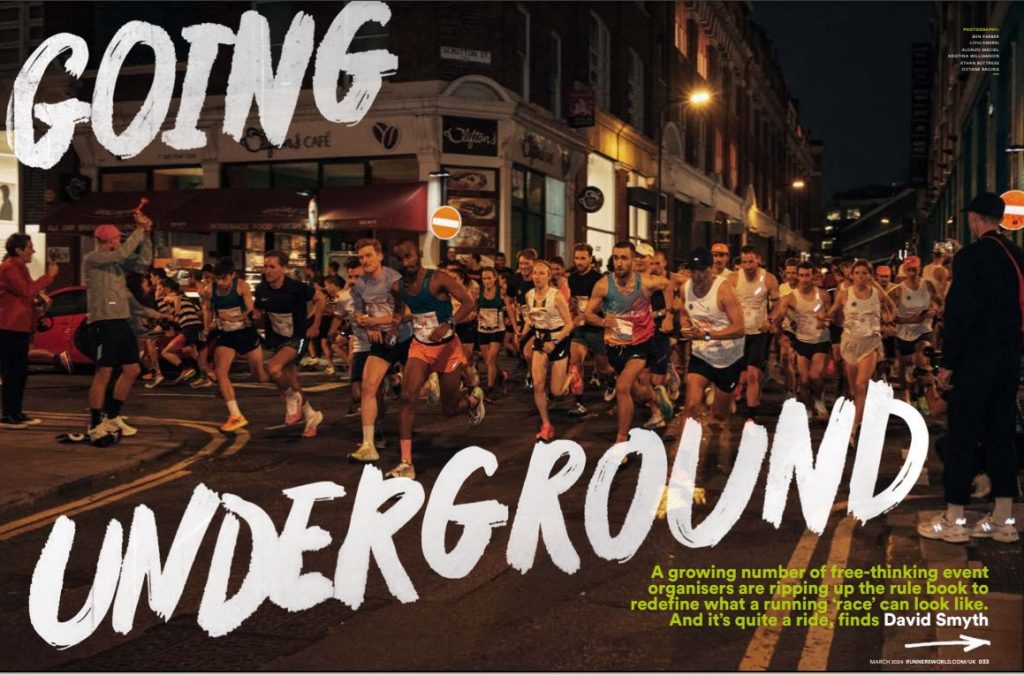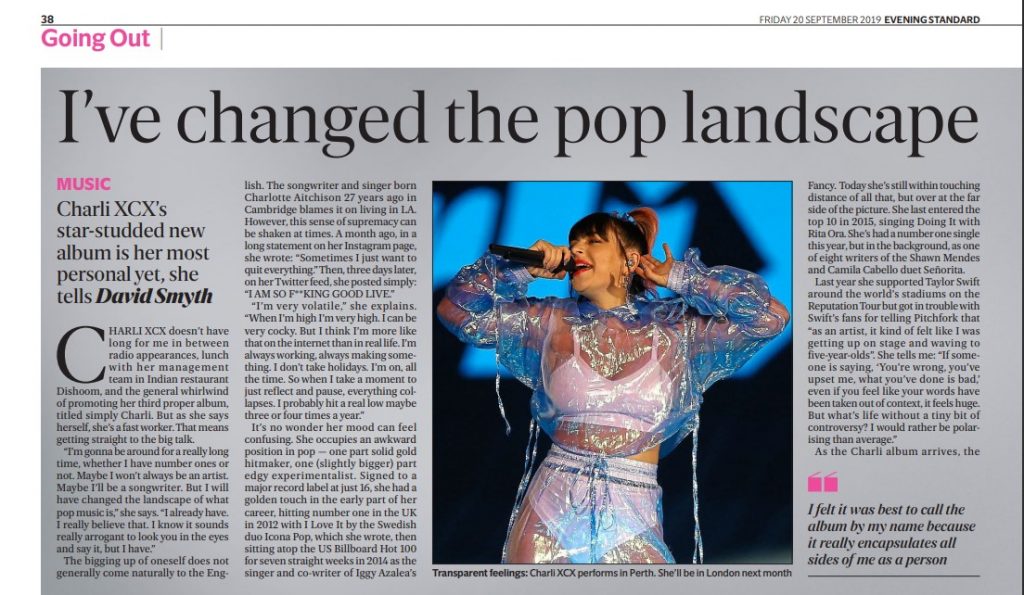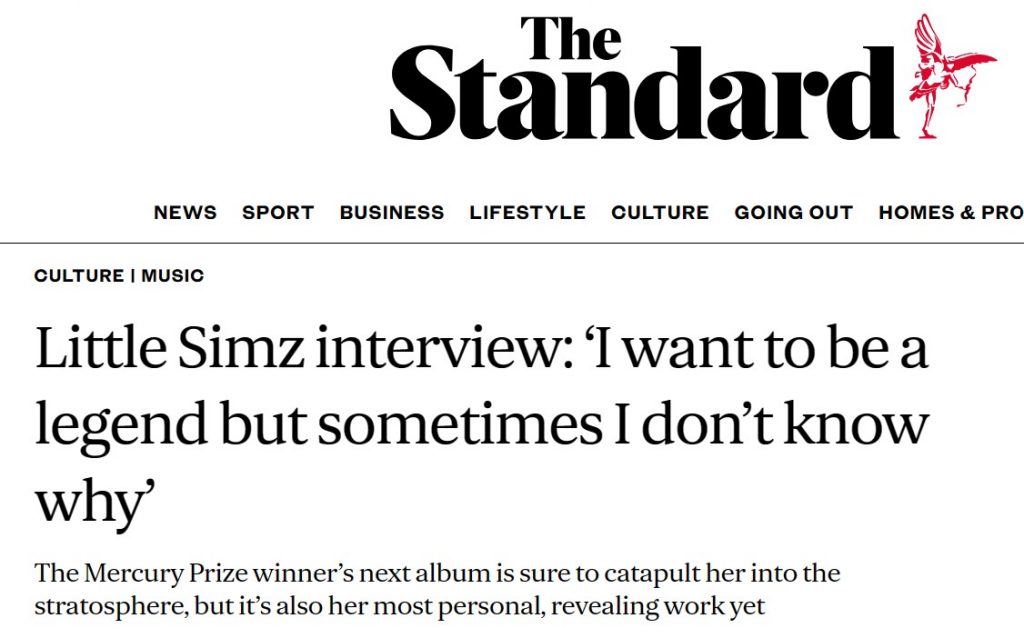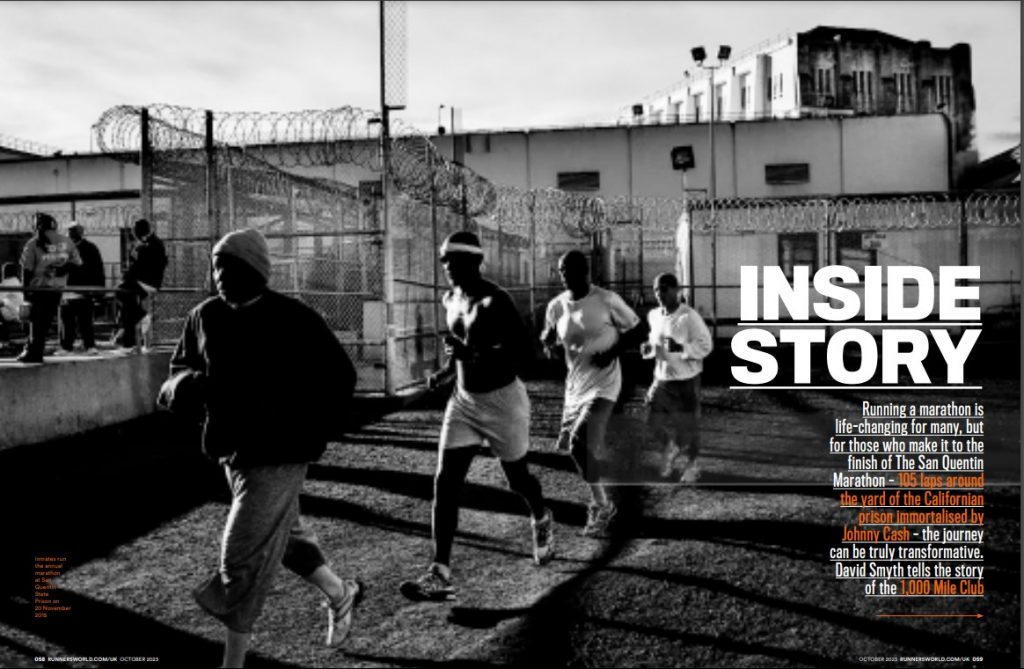We usually don’t expect too much from those who have gone viral. Enjoy your 15 megabytes of fame and disappear again. No one wanted an album from Cat Bin Lady.
The experience of Claire Cottrill, a 20-year-old from Massachusetts who has been posting her music online since she was 16, was different. “It was such a crazy thing, something so unexpected – just being available to everyone so quickly. At times I wish I’d had more time to prepare for that and really collect my thoughts about what kind of music I want to make and what I’m trying to be,” she tells me. “It was the hardest and best thing I’ve ever gone through.”
Since late 2014, she has put home recordings in the dozens on her Bandcamp and Soundcloud pages, calling herself Clairo (pronounced Claire-oh). They’re rudimentary works, mostly just her voice and a guitar, with many songs less than two minutes long. Her style could hardly be any more lo-fi if she had recorded herself down a well using twigs and bracken, but they have a charming intimacy, as if you’re there beside her, witnessing her first shaky steps towards a life in music.
She had developed a minor internet fanbase while still at high school in Concord, half an hour inland from Boston. “For a long time Soundcloud was a safe place for me to deposit songs. At first it was really just for me, but I think I gained a small following after a few years,” she says. “It wasn’t anything crazy but I was posting ‘for people’. People were waiting for something.”
When she switched to YouTube in August 2017 to upload a video for a new composition, Pretty Girl, things moved up several gears. At first glance it looks like thousands of other YouTube clips: a teenage girl in her room wearing headphones, singing and dancing in the most casual way, with subtitled lyrics in a blurry, retro pink font. The music appears to have been composed on the kind of Fisher-Price keyboard you might give a toddler, but there’s a barbed irony to lines such as: “I could be a pretty girl/Shut up when you want me to.” Its bittersweet melody, understated delivery and total absence of production values again give it a warm, intimate informality, like a sneak peek at someone’s diary. It went on to be watched 36 million times and made her the young queen of a genre the kids are calling “bedroom pop”.
“The fewer followers you have, the more freedom you have just to do whatever you want, so you can post as if it’s a diary because no one’s really looking,” she says. “It was after Pretty Girl blew up that I realised anything has the power to be seen. It was really hard for me to get over it.”
The next step was tricky: figuring out how to come out of the bedroom in which those who had discovered her wanted her to remain. “People definitely like the lo-fi music. I do too. I’m not ever gonna leave that but I do think it’s important that I grow in other directions,” she says.
She signed to the in-house label of the US style magazine Fader and the internet’s molehill-enlargement capabilities kicked in, with messageboard warriors accusing her of benefiting from her father’s connections as a marketing executive. I’m told she doesn’t want to talk about that today, but it does seem odd that anyone would believe, firstly, that every other pop success just walks in off the street, and secondly, that a middle-aged man could do a better job of making a song go viral than a schoolgirl who grew up online.
It shows how much her young fans, who are bombarded daily with social media artifice, need the musicians they admire to be real and relatable. Like Billie Eilish, who also started young and never seems to censor her personality or polish her sound for mass appeal, Clairo is no shiny pop star. “I definitely am a friend to them, which I love. If I can continue to be a positive force for someone, to make people feel comfortable, then I’ve done what I’m supposed to do.”
She’s currently touring US arenas in support to Khalid and admits it’s a struggle. “It’s pretty wild because I don’t know if my music was necessarily meant for arenas,” she says. Neither of the two singles from her imminent debut album – the Auto-Tuned minimalism of Closer or the blurry indie guitars of Bags – suggest confetti explosions. “The songs I put online weren’t well thought-out or calculated. I wasn’t thinking about what would sound good live. So learning how to bring it to life and get over stage fright – that’s what I’ve been trying to focus on this whole year. How do I become a performer? It’s so hard!”
It’s harder still because, age 17, she was diagnosed with juvenile rheumatoid arthritis. Having moved temporarily to LA to record her album with ex-Vampire Weekend man Rostam Batmanglij, she had to cancel some sessions because she was unable to walk. She’s in remission right now and it’s just another thing to draw on for material. Her album is called Immunity in reference to the autoimmune disease.
“It was a process of trying to turn negative experiences into positive ones. That was my main focus for the record,” she says. “Every song has a purpose. Either I’m singing about something that happened to me so that other people can relate to it, or I’m trying to bring light to a situation that could have a negative connotations, whether it be your sexuality or how you view your own body. I wanted to make a record for the 15-year-old me.”
Her sexuality is also something she’s been happy to talk about online and in song. Last year she effectively came out as bisexual in a throwaway tweet referring to a song from her first EP, B.O.M.D., which stands for “Boy Of My Dreams”. She wrote: “B.O.M.D. is also ‘G.O.M.D.’ for ur information. Was wondering how to ever say this publicly LOL.”
“That was the least thought-out thing I’ve ever done!” she says today. “I’m not necessarily the first person anyone should go to when it comes to that, because I’m still figuring it out. I don’t really know what it is either. But I think I should talk about it, if I’m thinking it. It’s important to acknowledge it. It felt good for me to talk about, so if it can offer any comfort to anyone else, that’s great.”
It’s been a strange journey, one that hasn’t happened at the pace she might have liked, but Clairo is accepting and growing into her role as a relatable role model. She’s not the kind of pop star whose poster you put on your bedroom wall – she’s right there in the room with you, feeling the same things and expressing them in songs as beautifully imperfect as you are.
“I think what people like about everyone in this scene is that it feels like you’ve stumbled upon something that no one else has. By listening to something so personal, it feels like you’re a part of it,” she explains. “So even if I sound more polished and work in a studio and spend money on making my records, I want it to feel like it’s still close to you. As if it’s for you.”
Immunity is released on Aug 2 on Fader Label. Clairo plays Aug 23 at Reading Festival, Richfield Ave, Reading (readingfestival.com)











